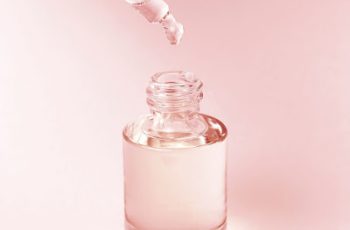
Can you use Retinol While Breastfeeding?
First of all, congratulations on the safe arrival of your new little bundle of joy. That was a long 9 months, but the reward was certainly worth it. The question you may have now, especially if you are an avid skincare user, are you able to use retinol while breastfeeding?
This can often feel overwhelming and sometimes quite daunting when it comes to finding the best things to use that remain safe for you and your baby. Therefore, before you continue reading today’s blog post, I strongly advise you consult with your doctor before introducing new skincare ingredients or products into your daily routine.
So, without further a due, let’s dive in and find out more about using retinol while breastfeeding.
Why can you not use retinol while breastfeeding?
Due to retinol being one of the most potent skincare ingredients, it is often considered a controversial choice whilst pregnant or breastfeeding. This is because even when it is applied topically it can be absorbed into the bloodstream and result in multiple effects and problems to the child, whether it is born or not.
With the number of birth defects retinol can cause to the fetus when used or taken during pregnancy. When it comes to breastfeeding and using retinol, there is no scientific evidence suggesting why it’s considered a bad idea to use when breastfeeding. But for peace of mind and understanding that the negative effects of retinol can have on babies, it may be a good idea to avoid using any form of vitamin A or retinoid enriched products until your baby is weaned fully and no longer at risk.
What skincare ingredients to avoid while breastfeeding?
As you may have guessed, it’s not just retinol that should be avoided when breastfeeding. Other products such as makeup, sunscreen, and blemish fighting ingredients should be avoided. Here are some examples of ingredients to give a miss until you have finished your breastfeeding journey.
Retinol
Retinoic acid
Retin-A
Retinoids
Beta Hydroxy Acid (BHA)
Salicylic Acid
Diferin
Oxybenzone
Benzoyl Peroxide
You will be able to find these ingredients listed on the packaging, but if you have any concerns consult with your doctor before applying any products to your skin. Ideally the best skincare ingredients to use whilst pregnant and breastfeeding are those considered non-comedogenic which basically means they do not clog the pores. I’ll be explaining more about this in the next section of today’s post.
What skincare can I use while breastfeeding?
Now, if you had yourself a well-established skincare routine before pregnancy, chances are you’re itching to crack it back out and slather it all over the skin. Heaven knows you’re in need of your all-time favourite serums and lotions after those late night and early morning feeds. The only problem is, it isn’t just pregnancy you need to be cautious with when it comes to applying formulas to your skin. As I have already suggested there are some ingredients that should be avoided completely, and I understand how this may feel disheartening, especially if you are desperate to reap the rewards of retinol again. Not to worry as I will now share with you some safe and effective alternatives to use during breastfeeding.
Swap Retinol for Peptides
There’s no denying that if you are wanting a rapid and impressive way of combating signs of ageing, there really is nothing as potent as retinol. Having said that it is strongly advised to not use any form of vitamin A, so the next best thing is, peptides. Peptides are chains of amino acids which work in the lower layers of the skin and provide a boost in collagen production and elastin. This results in the skin looking plumper, youthful, and full of bounce without the worry of harmful side effects of retinol for you and your baby.
Swap Salicylic Acid for Lactic Acid
As effective as salicylic acid is at combating spots and breakouts, the potent BHA is recommended not to use during pregnancy or breastfeeding. Making the switch to lactic acid will still provide you with similar exfoliating benefits, because the molecular size of lactic acid is very large meaning it is unable to penetrate too far into the skin and cause irritation and other unwanted reactions.
Other highly beneficial skincare ingredients to use whilst breastfeeding, are hyaluronic acid, niacinamide, vitamin C, vitamin E and nourishing oils, such as avocado.
Can I use retinol while pregnant?
No, it is advised to not use retinol at all whilst you are pregnant. Once the retinol absorbs into the blood stream there will be several defects causing damage to the developing fetus. If you have any concerns with any skincare formulas you are applying, stop using them and consult with a doctor to ensure you are safe to continue using them in your daily routine.
What does retinol do to babies?
Retinol when applied topically or ingested in the form of a supplement will cause a number of problems for the developing embryo and fetus, often leading to miscarriage, premature delivery, and many more birth defects, more commonly known as fetal retinoid syndrome.
The reason retinol causes these problems is due to the increase of vitamin A. This vitamin is essential for the body to function properly and helps regulates cellular movements, but with excessive amounts exposed to an embryo will result in teratogenesis, which causes congenital anomalies and disorders.
When should I stop using retinol before pregnancy?
You may be pleased to hear that it only takes 1-2 days for any remaining traces of Retin-A to remove itself from the body. If you are planning to conceive, I would suggest you stop using your retinol product for a least a week, just to be on the safe side. You are then able to reintroduce retinol back into your daily skincare routine once your baby is fully weaned or you have chosen to no longer breastfeed.
There you have a little more information about using retinol whilst breastfeeding. As I have already mentioned, it is important you consult with your doctor to ensure what you are using is safe for you and your baby.
Don’t forget to come and follow us on Instagram!


